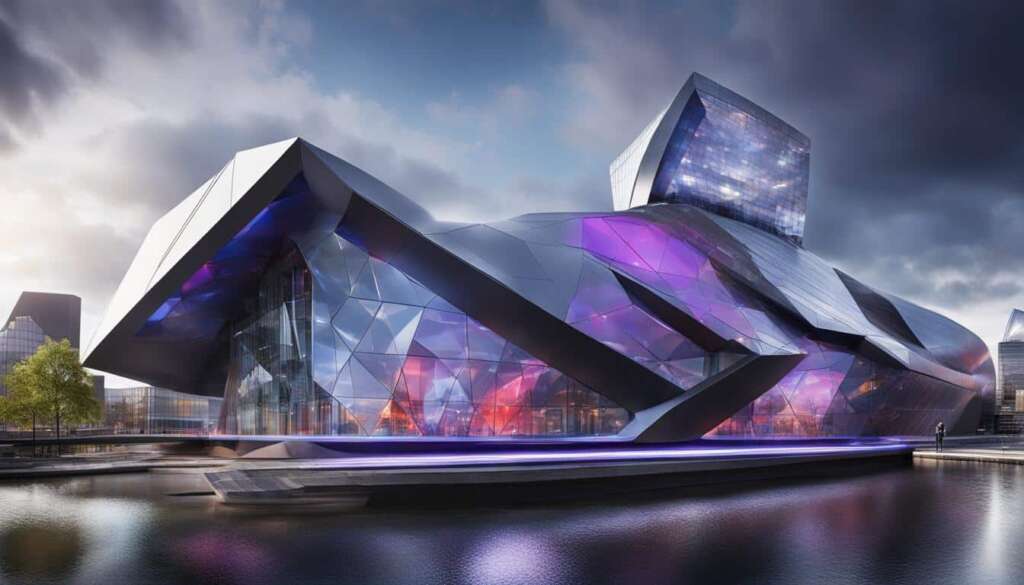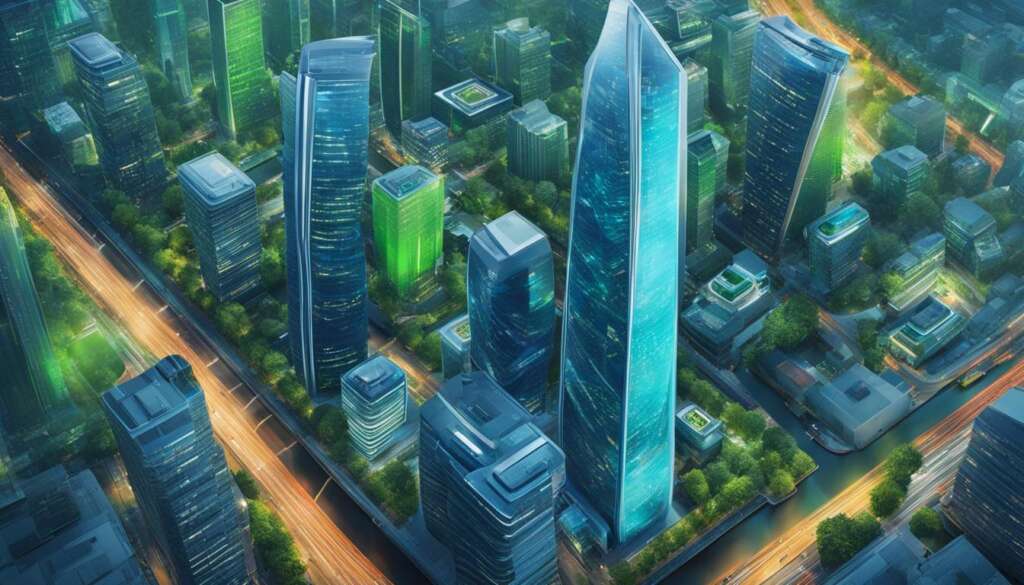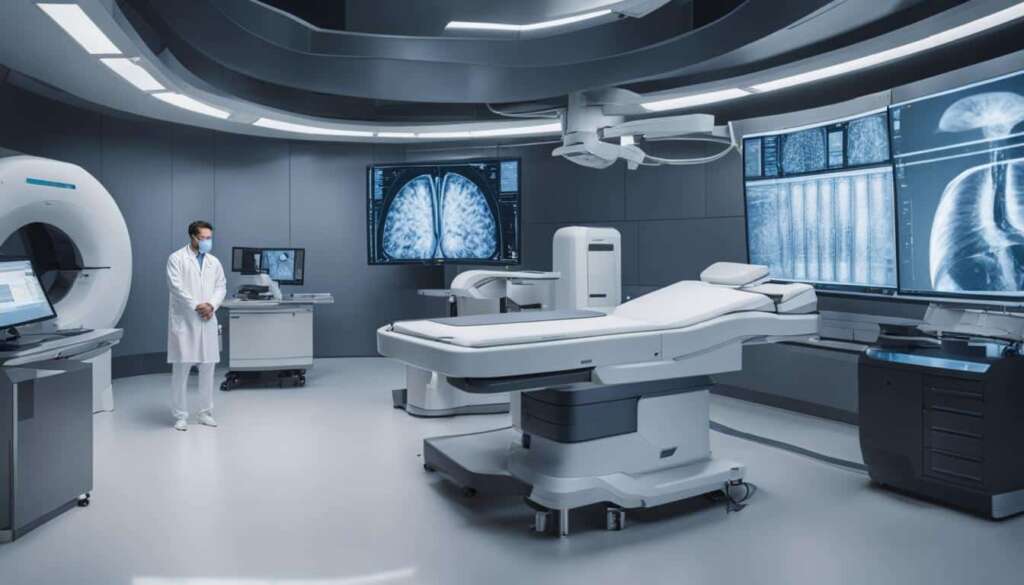Table of Contents
The Department for Science, Innovation, and Technology (DSIT) has announced its plan to establish a second headquarters in Salford, positioning itself at the heart of the community that has played a pivotal role in shaping scientific and technological advancements in the UK. This move is part of the government’s commitment to grow the number of roles outside of London and the South East. DSIT currently has nearly 200 staff based in Greater Manchester and plans to double this number in the coming years.
Greater Manchester is recognized as an active growth location for DSIT, along with other cities like Birmingham, Bristol, Cardiff, Darlington, and Edinburgh.
Salford has emerged as a major player in the science and tech industry, with a strong focus on innovation and advancements. It is home to a thriving tech hub that fosters collaboration and entrepreneurship, attracting both established companies and startups. The Salford Science and Tech Department, in partnership with industry leaders, is driving business growth and pushing the boundaries of technological advancements.
Manchester, with its vibrant tech infrastructure, serves as a catalyst for the region’s technological progress. The city’s commitment to scientific research and development has led to groundbreaking discoveries and innovative solutions. Moreover, Salford places great emphasis on science education, nurturing the next generation of scientists, engineers, and innovators.
In the following sections, we will delve deeper into the contributions of Salford’s sci-tech department to the business landscape, the science and technology education in Manchester, and the economic impact of Skypark, a thriving tech hub in the region.
Salford’s Sci-Tech Department Drives Business Growth
One of the notable success stories emerging from the Salford science and tech department is Spice Kitchen, a Speke-based manufacturer of spice products. This innovative company has recently made substantial investments in data and systems technologies, with the support of the Made Smarter program. The program, which aims to champion technology adoption among manufacturers, has granted Spice Kitchen £20,000 to boost its digital transformation.
With this financial backing, Spice Kitchen has invested a total of £40,000 in cloud-based software. This cutting-edge technology will facilitate the integration and automation of previously manual and disconnected systems within the company. The expected result is a doubling of productivity and sales, with projected revenues of £2m. Such an impressive achievement will open doors for Spice Kitchen to expand its international wholesale sales and create three new management positions to further drive growth.
The impact of this investment extends beyond immediate financial benefits. By streamlining operations and improving connectivity across departments, the cloud-based software will enhance the quality and consistency of Spice Kitchen’s business operations. Furthermore, this increased efficiency creates a scalable platform for the company’s future growth and positions it for long-term success in the competitive spice industry.
This remarkable success story showcases how Salford’s dedication to innovation and technological advancements is driving business growth. The collaboration between the Salford science and tech department and programs like Made Smarter demonstrates the city’s commitment to nurturing a thriving tech hub in the heart of Manchester’s illustrious tech infrastructure. As a result, Salford is rapidly establishing itself as a leading destination for businesses seeking to leverage cutting-edge technologies and accelerate their growth.
Manchester’s Science and Tech Education
Manchester is renowned for its thriving science and technology education. The city is home to several prestigious universities and educational institutions that offer a wide range of programs in science, technology, engineering, and mathematics (STEM) fields. These institutions play a crucial role in equipping students with the knowledge and skills necessary to excel in the rapidly evolving tech industry.
Students in Manchester have access to cutting-edge facilities and world-class faculty who are committed to fostering scientific curiosity and innovation. The city’s strong emphasis on research and development ensures that students are exposed to the latest advancements and emerging technologies.
One notable institution in Manchester is the University of Manchester, which consistently ranks among the top universities globally for its STEM programs. The university’s Faculty of Science and Engineering offers a diverse range of courses, including computer science, chemistry, physics, and bioengineering.
Salford, a city located within the Greater Manchester area, is particularly recognized for its focus on science education. The University of Salford, located in the heart of the city, is a hub of scientific research and innovation. The university’s state-of-the-art facilities and industry partnerships provide students with hands-on learning experiences and real-world exposure.
Furthermore, Salford has implemented initiatives to promote STEM learning among young people. Through partnerships with local schools and community organizations, Salford’s science education programs aim to inspire and encourage students to pursue careers in science and technology fields.
Universities and Institutions in Manchester
| University/Institution | Programs Offered |
|---|---|
| University of Manchester | Computer Science, Chemistry, Physics, Bioengineering, and more |
| University of Salford | Engineering, Robotics, Computer Science, Biomedical Science, and more |
| Manchester Metropolitan University | Artificial Intelligence, Data Science, Engineering, Psychology, and more |
| Manchester College | Electrical Engineering, Environmental Science, Biotechnology, Health and Social Care, and more |
Manchester’s commitment to science and technology education not only benefits its students but also contributes to the overall growth and success of the city’s tech ecosystem. By nurturing talent and fostering collaboration between academia and industry, Manchester continues to position itself as a leading hub for scientific research and technological advancements.
Skypark’s Economic Impact on the Local Economy
Skypark, a development near Exeter, has recently finalized a land deal to construct 36 business units, resulting in a staggering 40,000 sq ft of commercial space. This ambitious project is seen as a significant endorsement of the local economy, showcasing the city’s Manchester momentum and establishing Salford as a thriving tech industry and Manchester tech hub. The development is set to stimulate job growth with 132 employment opportunities during the construction phase alone. Moreover, it is projected to generate over 288 additional jobs upon completion.
Skypark’s focus on providing small and medium-sized business units directly addresses the demand from the local entrepreneurial ecosystem. By creating ample room for business expansion, this forward-thinking initiative aims to foster continuous growth and contribute to the economic recovery in the aftermath of the recent pandemic. This development not only offers much-needed support to the local workforce but also strengthens Salford’s position as a key player in the Manchester tech industry.
The realization of Skypark’s vision serves as a testament to the thriving business environment and flourishing tech ecosystem in the Greater Manchester area. By attracting investment and encouraging the establishment of innovative enterprises, this project bolsters the region’s reputation as a Manchester tech hub, fueling economic prosperity and creating new opportunities for both aspiring entrepreneurs and established businesses alike.
FAQ
What is the Department for Science, Innovation, and Technology’s plan for Salford?
The Department for Science, Innovation, and Technology (DSIT) has announced its plan to establish a second headquarters in Salford. This move aims to position DSIT at the heart of the community that has played a pivotal role in shaping scientific and technological advancements in the UK.
How many staff does DSIT currently have in Greater Manchester?
DSIT currently has nearly 200 staff based in Greater Manchester.
What is the government’s commitment regarding job growth outside of London and the South East?
The government is committed to growing the number of roles outside of London and the South East. DSIT’s expansion in Greater Manchester, along with other cities like Birmingham, Bristol, Cardiff, Darlington, and Edinburgh, reflects this commitment.
How has Spice Kitchen utilized the Made Smarter program?
Spice Kitchen, a Speke-based manufacturer of spice products, has invested in data and systems technologies with the support of the Made Smarter program. With a £20,000 grant, Spice Kitchen has invested £40,000 in cloud-based software, which integrates and automates manual and disconnected systems. This investment is expected to double productivity and sales to £2m, create three new management jobs, and expand international wholesale sales.
What benefits does Spice Kitchen expect from its investment in data and systems technologies?
The investment in data and systems technologies is expected to improve the quality and consistency of Spice Kitchen’s business operations. It will also create a scalable platform for future growth.
What is the significance of Manchester’s science and technology education?
Manchester is known for its thriving science and technology education. The city is home to several universities and educational institutions that offer a wide range of programs in STEM fields. These institutions provide students with the knowledge and skills needed to excel in the rapidly evolving tech industry.
What is Salford’s focus in terms of science education?
Salford has a strong focus on science education with initiatives aimed at promoting STEM learning and encouraging young people to pursue careers in science and technology.
What is the Skypark development in Exeter?
Skypark is a development near Exeter that has completed a land deal for the construction of 36 business units, creating over 40,000 sq ft of commercial space.
What impact will the Skypark development have on the local economy?
The Skypark development is considered a “massive vote of confidence” in the local economy. It is expected to support 132 construction jobs and generate over 288 new jobs, providing opportunities for growth and economic recovery in the wake of the coronavirus pandemic.













